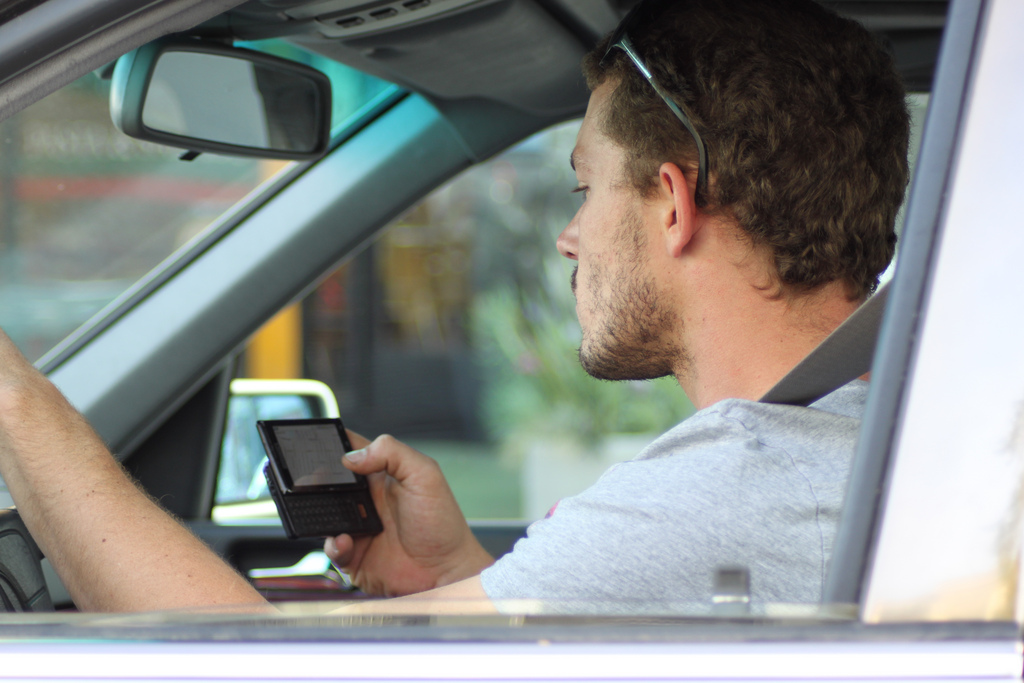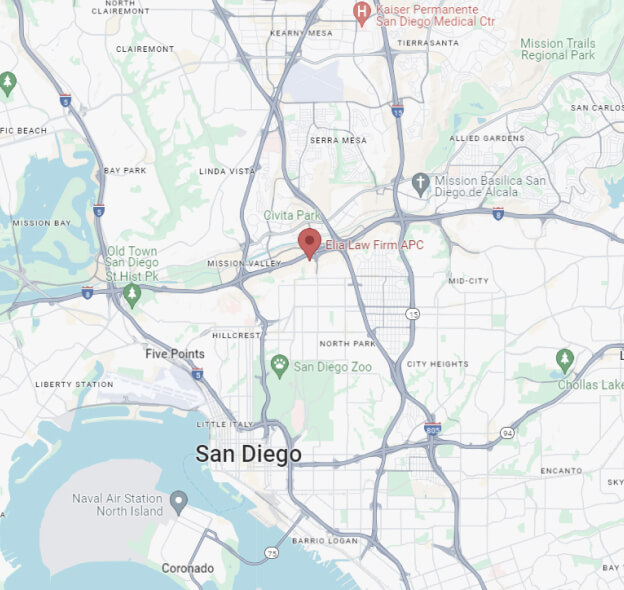Scientific studies conducted over the last few years are suggesting that texting and driving is as dangerous as severe intoxication is to driving. Back in 2009, Virginia Tech released a study that texting and driving increased the likelihood of an accident by twenty-three times compared to driving with no distractions. That means texting and driving is six times as dangerous as driving with a BAC of .08.
Right now, texting and driving causes fewer deaths than drunk driving, but with how fast people are buying cellular and smart phones, and how necessary they’re becoming to daily life, it’s only a matter of time before texting and driving accidents overtake them – UNLESS we nip the trend in the bud.
Texting and driving is six times as dangerous as driving with a BAC of .08.
Governments on the national, state and local level have started passing anti-texting and driving legislation, with 46 states including D.C. and most of the territories banning texting and driving. 14 states and territories forbid using any kind of handheld at the wheel. This is good, but legislation and enforcement will only be one part of the solution, just like drunk driving needed and still needs dedicated effort from public and private sources to bring incidents down and keep them down.
So what do we do to stop texting and driving accidents before they happen?
Ford thinks it has a solution, and has made this ingenious social media partnership to make it happen.
The dangers of texting while driving are well known, but people can’t help it. Our hands automatically move to pick up the phone as soon as we hear the message beep, not unlike a Pavlovian response. Ford and Life 360 (a popular location sharing app) have decided to attack the problem from the other side: they’re creating a function for future Fords that will warn people attempting to text you that you’re driving.
It’s ingeniously simple. With new cars, pairing your phone to your car via Bluetooth or USB charger is almost as automatic as responding to a text message. So when you synchronize your phone and your car, Ford’s SYNC AppLink will activate Drive Mode and automatically inform those in your network when you are driving. Nothing stops a text faster than knowing the recipient won’t respond. At least that’s the hope.
It’s a good idea but it has flaws.
There’s more to be done with the idea—the function might mute incoming communications and social media updates and thus prevent distractions outright, but it’s not perfect. In fact, there are serious weaknesses.
- For one, the function only works if you’re sharing a Life 360 circle. Anyone outside your network remains as unknowing about your movements as ever. Solution: Don’t limit this to one social media app. There are many others like Life 360. If Ford really wants to save lives, getting greater adoption by including other apps would be better.
- Second, the system only keeps others from messaging you. There’s nothing stopping you from distracting yourself by writing outgoing messages – or indeed, them from sending you a message anyway. Solution? Personal accountability. And that’s the most difficult of all to attain. Everyone says they won’t text and drive but they do it anyway. Short of locking your hand to the wheel, no app can force personal accountability on you. Only you can do that.
So what’s a better solution?
I think Ford is onto something with the Bluetooth sync since syncing is becoming commonplace anyway.
So why not just disable the phone’s texting ability entirely when the phone is synced with a car? It’s a nuisance to unsync phones, and, besides, we all like them synced to receive and send calls or stream Pandora, so the chance of someone unsyncing their phones each time they get into the car is unlikely.
Take it a step forward and have the phone respond back with a “sorry, I’m driving now” message when a text comes in and then I think we have something that might actually work. (Any developers out there looking for a good idea?)
Short of locking your hand to the wheel, no app can force personal accountability on you and keep you from texting. Only you can do that.
At least it’s a start
So Ford’s anti-texting app may not be perfect, but at least it’s a step in the right direction.
What we really need is a larger effort put into making drivers more responsible as users of the multi-ton vehicles.
And, come to think of it, if anything, this app does at least bring awareness to the texting and driving problem. And with awareness, comes change, perhaps one blocked or ignored text at a time, and one blocked text can save one life.
When it comes to saving lives, every little bit helps. I applaud Ford for the effort.
Photo credit: April 10 033 (license)
- Who Is at Fault in a Motorcycle Lane Splitting Accident in California? - August 26, 2024
- Are Dogs Attacking Without Warning or Are We Misinterpreting Key Signals? - March 4, 2024
- Can You Sue If No One Witnessed Your Slip and Fall Injury? - February 10, 2024












